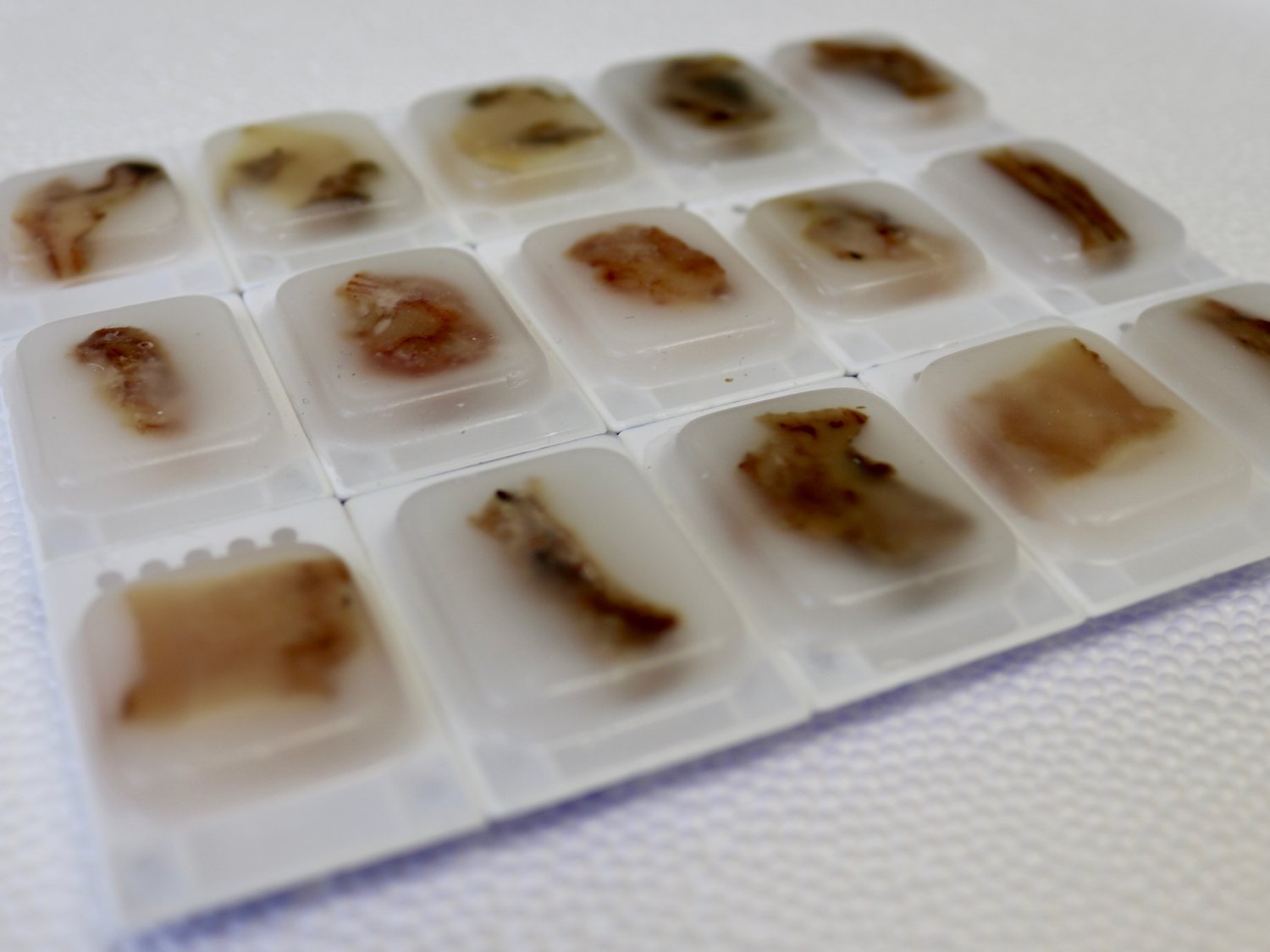The tissue procurement of human specimens from biorepositories with top-quality samples helps in the advancement of scientific and clinical studies into a variety of serious illnesses. In recent years, a lot of research studies on various diseases rely on Formalin-fixed, paraffin-embedded (FFPE) blocks for studying proteins, DNA, and RNA. FFPE blocks are a great way to study a broad range of biomarkers.
Recent research has shown that the time spent in ffpe block storage does not have a significant impact on the amount or quality of extracted nucleic acid and proteins. The study showed that for periods between 11-12 and 5-7, and 1-2 years, there were no significant differences between the macromolecules extracted for blocks from the current year.

Image Source: Google
This study looked at the quality and amount of nucleic acid and total protein contained in the FFPE block of different malignant tumors which were stored over a number of years. They compared the results to the current blocks. The study concluded that there was no significant difference in the extracts obtained.
Modern advances in molecular biological techniques have given rise to the ability to remove fragmented DNA, proteins, and RNA from blocks made of FFPE. This is a significant improvement because the archived FFPE blocks are now an important source of material that could aid in the investigation of biomarkers to aid in targeted treatments and prognosis. Fragmented macromolecules are effectively utilized in downstream analyses in which short fragments are all that's needed.
The amplified fragments of DNA have been used using PCR Biomarker analysis has been made easier by microRNAs and fragmented proteins have proved beneficial for mass spectrometry. Given the huge amount of archived material in the block form of FFPE, there has been some debate regarding whether the quantity and quality of the macromolecules extracted depend on the storage duration.
